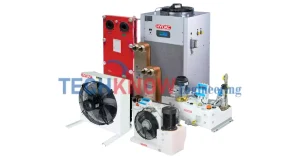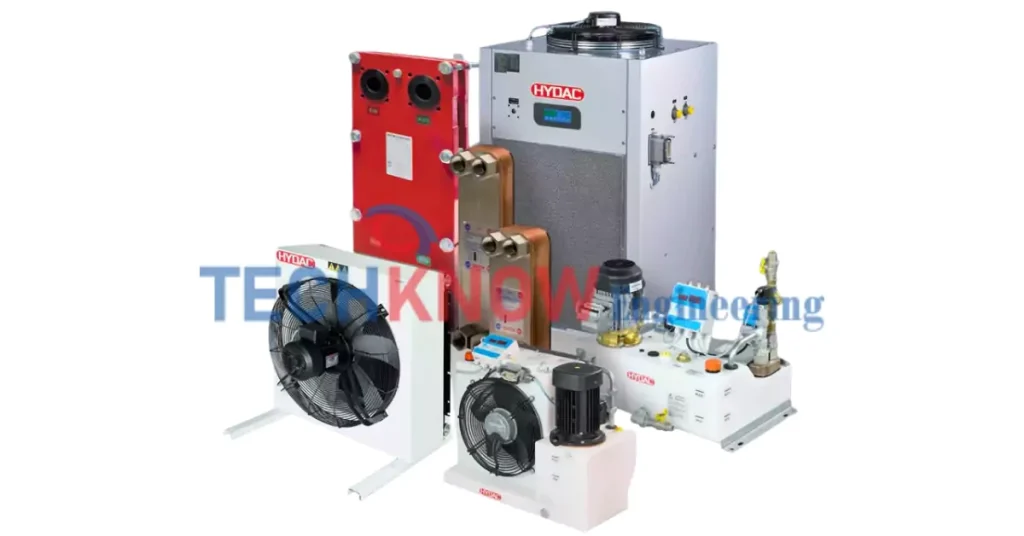What is an Oil Cooling Systems? A Complete Guide
Modern engines generate tremendous heat during operation, and managing this thermal energy is crucial for optimal performance and longevity. An oil cooling system serves as a vital component in maintaining proper engine temperatures, protecting your machinery from costly damage and ensuring smooth operation.
We will explores how oil cooling systems work, their key benefits, different types available, and essential maintenance practices to keep your system running efficiently. Learn how oil cooling systems work, their benefits, types available, and maintenance tips. Essential guide for optimal engine performance.
How Oil Cooling Systems Work
An oil cooling system operates on a straightforward principle: circulating engine oil through a cooling mechanism to reduce its temperature before returning it to the engine. The process begins when hot oil from the engine flows through specially designed cooling lines to a heat exchanger or radiator.
The cooling component removes excess heat from the oil using either air or liquid cooling methods. Air-cooled systems use fans and fins to dissipate heat, while liquid-cooled systems transfer heat to the engine’s coolant system. Once cooled, the oil returns to the engine to continue its protective and lubricating functions.
A thermostat typically controls the system, directing oil through the cooler only when temperatures exceed safe operating levels. This ensures the engine reaches optimal working temperature quickly whilst preventing overheating during demanding conditions.
Key Benefits of Oil Cooling Systems
Oil cooling systems offer several advantages that make them essential for high-performance engines:
- Temperature Control: The primary benefit is maintaining optimal oil temperature, typically between 80-120°C, which preserves the oil’s lubricating properties and prevents thermal breakdown.
- Extended Engine Life: By keeping oil temperatures within safe limits, these systems reduce wear on engine components, particularly bearings, pistons, and valve trains.
- Improved Performance: Cooler oil maintains better viscosity, ensuring proper lubrication even under extreme conditions. This leads to more consistent engine performance and power output.
- Reduced Maintenance Costs: Preventing oil degradation extends service intervals and reduces the need for frequent oil changes, saving money on maintenance.
Types of Oil Cooling Systems
Several oil cooling system designs cater to different applications and requirements:
- Air-Cooled Systems: These use external radiators with fins and fans to dissipate heat. They’re commonly found in motorcycles and smaller engines where simplicity and weight are important factors.
- Liquid-Cooled Systems: More complex systems that integrate with the engine’s cooling system, using coolant to remove heat from the oil. These are typically found in larger engines and high-performance applications.
- Thermostatic Systems: Feature temperature-controlled valves that regulate oil flow through the cooler, ensuring optimal operating temperatures under varying conditions.
Essential Maintenance Tips
Regular maintenance ensures your oil cooling system operates effectively:
Check oil levels frequently, as cooling systems can mask consumption issues. Inspect cooling lines for leaks, cracks, or blockages that could impair circulation. Clean air-cooled radiators regularly to remove debris that reduces cooling efficiency.
Monitor oil temperature gauges during operation and investigate any unusual readings immediately. Replace filters according to manufacturer specifications, as contaminated oil can clog cooling passages.
Maximising Your Engine’s Potential
Oil cooling systems represent a smart investment for anyone serious about engine performance and longevity. By maintaining optimal oil temperatures, these systems protect your engine whilst delivering consistent performance under demanding conditions.
At Techknow Engineering Enterprise, we understand the critical role oil cooling systems play in modern engines. Whether you’re upgrading an existing system or installing a new one, proper selection and maintenance will ensure years of reliable operation and peak performance.
Oil Cooling System

Oil cooling systems are vital for maintaining engine temperature and efficiency. By dissipating excess heat, they prevent overheating and improve performance. This guide explains how oil cooling systems work, their key benefits, types to consider, and tips for effective maintenance to ensure long-lasting reliability.
Product Brand: Techknow Engineering Enterprise
Product Currency: INR
Product In-Stock: InStock
5


